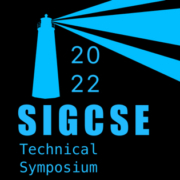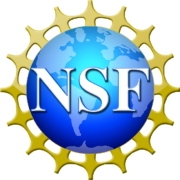 Professional Development for Teaching-Track Faculty
Professional Development for Teaching-Track Faculty
2022 SIGCSE TS Pre‐Symposium Event
Wednesday, March 2, 8:30AM – 3:30PM ET
Location: Omni Providence Hotel in Providence, Rhode Island, USA
Room: Narragansett B
Enrollment in CS courses and programs continues to be high. To meet this increased demand, many Ph.D. granting departments have added or are actively recruiting teaching faculty (typically with academic rank) to their faculty. This whole-day event will focus on the professional development of teaching-track faculty (professor of practice, instructor, clinical faculty, lecturer, etc.) in Ph.D. granting departments. The event fills a crucial need as many departments have limited experience on how to mentor, evaluate, and promote this new type of faculty. The sessions will focus on how teaching faculty can strategize their involvement in departmental as well as research activities, different forms of scholarship and leadership activities to pursue, and best practices for success, promotion, and advancement. Junior and mid-career teaching-track faculty will participate in an “unconference” format. By gathering topics of common interest, attendees will self organize to provide peer mentoring and to collect advice for professional development rather than having pre-planned panels or sessions at the discretion of the organizers.
EDIT 1/14: Moving to a fully hybrid model
In response to the number of applicants who have expressed needs for accomodations for remote participation, we are shifting the workshop to a fully hybrid model, with the goal of providing a high quality experience for remote and in-person attendees. We will use one central video conferencing platform to coordinate interactions, so all attendees will need a device capable of connecting to such a platform during the workshop. Internet will be available for in-person attendees. Please do help us plan by indicating your expectation about whether you will be in person or remote.
Agenda
- 8:30 – 8:40 AM ET
Introduction to organizations, format. Frame the goal is developing 1) networks of people with shared experiences, 2) a shared resource to help others (an FAQ). - 8:40 – 9:25 AM ET
Four 10 minute rounds of small group (2-3 people) introductions (name, affiliation, title, roles, responsibilities), brainstorming the topics of most interest for later discussion. Submit breakout topics in real time; organizers will organize such that there are enough breakouts for each to have no more than 4-5 people. Device set up at each roundtable for remote participants. - 9:25 – 9:30 AM ET
Break - 9:30 – 9:35 AM ET
Announce breakouts and explain format: 1) attendees choose one room to attend, 2) repeat introductions, 3) choose a scribe, 3) talk in detail with the other participants about the topic, surfacing key questions, concerns, strategies, and 4) in the last 15 minutes, synthesize the notes by the scribe into key takeaways in shared document. - 9:35 – 10:20 AM ET
Breakouts round 1; reminder to synthesize with 15 min left. - 10:20 – 10:30 AM ET
Break - 10:30 – 11:15 AM ET
Breakouts round 2; reminder to synthesize with 15 min left. - 11:15 – 11:30 AM ET
Overview of second half: 1) eat lunch with someone you met that you want to know better; keep groups small, 2-4 people, 2) come back and meet people you haven’t met. - 11:30 AM – 1:00 PM ET
Meal break - 1:00 – 1:15 PM ET
Recap of key takeaways from breakouts, and next task: individually write answers to questions that surfaced. Participants choose a question they feel they want to contribute to; mentors choose a question that they feel they have the most expertise in. (It’s okay if some questions have no expertise). - 1:15 – 2:00 PM ET
Q&A writing breakouts; goal is to draft an outline of key points. - 2:00 – 2:15 PM ET
Break - 2:15 – 3:00 PM ET
Q&A writing feedback; goal is to provide feedback on drafts; attendees should go to breakouts where they want answers, mentors to breakouts for which they have expertise. - 3:00 – 3:15 PM ET
Discussion: where to post FAQ? - 3:15 – 3:30 PM ET
Prompt to go socialize with people they met! Happy hour, remote walk. Try to bring remote attendees along with you on devices so they can participate in socializing.
Organizers
- Geoffrey Herman, University of Illinois, glherman@illinois.edu (Chair)
- Amy J. Ko, University of Washington, ajko@uw.edu
- Brandon Myers, University of Iowa, brandon-d-myers@uiowa.edu
- Lori Pollock, University of Delaware, pollock@udel.edu
CRA Anti-Harassment Contact
FAQ
-
- Q: How is this event different from similar SIGCSE events?
A: The proposed event complements existing SIGCSE events targeted at teaching faculty and instructors. More specifically,- The New Educators Workshop (offered at SIGCSE 20) is targeted at academic-oriented graduate students, postdocs, and pre-tenure faculty interested in general questions about teaching, job searching for teaching positions, and teaching careers.
- The Professional Development for Teaching Faculty Pre-Symposium (this event) is targeted at teaching-track faculty in Ph.D. granting departments. The focus is on professional development and career advancement for teaching-track faculty in a research department. The event does not cover teaching, classroom management practices, or job searching. Graduate students and post-docs will be considered as space allows.
- The Managing the Early Academic Career for Women Graduate Students Pursuing Faculty Positions in Undergraduate Computing Programs workshop focuses on mentoring information and advice for women graduate students (in their final year) interested in an academic teaching career.
- Q: Is there a limit on the number of participants?
A: Yes. The maximum number of participants is about 60. Should the number of applications exceed this number, the number of applications accepted from one department will likely be limited.
- Q: How is this event different from similar SIGCSE events?
Funding for the workshop is generously provided by the National Science Foundation.



